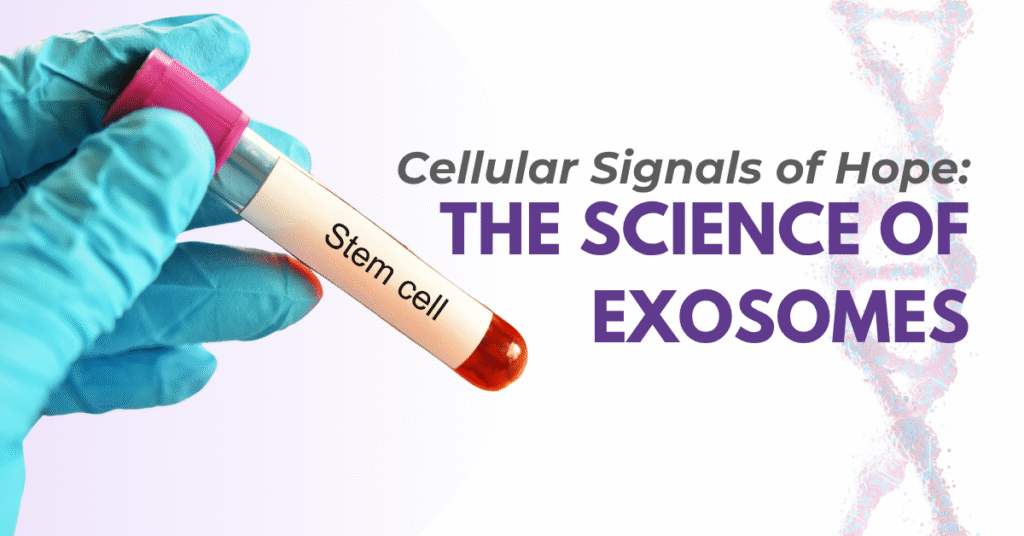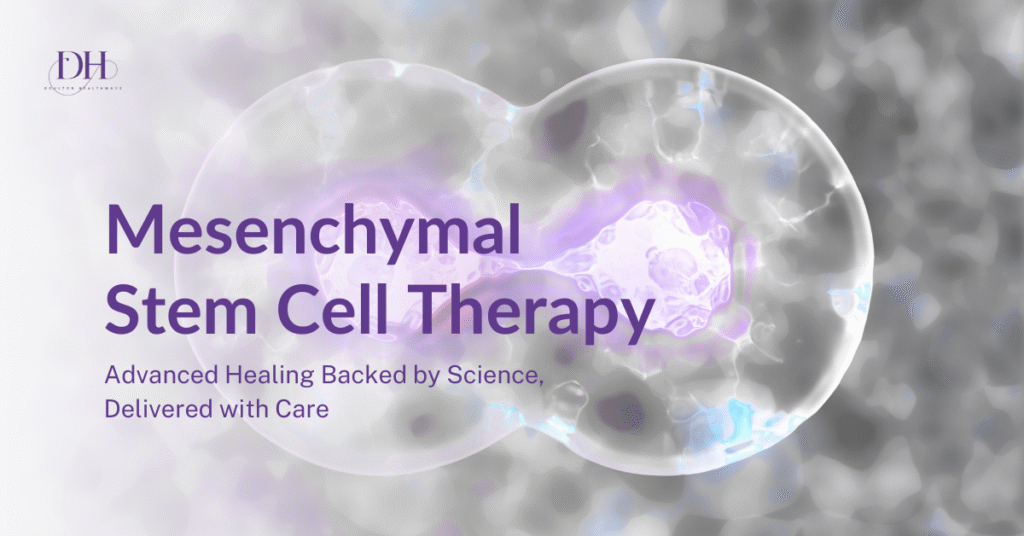
Calming the Chaos Within: MSC Therapy for Autoimmune Disorders
When Your Immune System Turns on You. That’s the difficult reality for millions of people living with autoimmune diseases. Conditions like rheumatoid arthritis, lupus, multiple sclerosis, Crohn’s disease, and psoriasis all have one thing in common: the body’s own defense system begins attacking healthy tissue. And for many, that means a lifetime of inflammation, pain, fatigue, and uncertainty.
At Doulton Healthwave, we believe in empowering people with education and options—especially when conventional treatments offer only symptom control. That’s why we’re sharing the growing science behind Mesenchymal Stem Cell (MSC) Therapy as a promising path for those living with autoimmune disorders.
Understanding Autoimmune Diseases
Your immune system is built to protect. But in autoimmune diseases, it misfires—mistaking your own cells for invaders. This leads to chronic inflammation that damages organs, joints, muscles, and skin.
There are over 80 types of autoimmune diseases, but some of the most common include:
- Rheumatoid arthritis (RA): Affects the joints
- Systemic lupus erythematosus (SLE): Can affect skin, kidneys, heart, lungs
- Multiple sclerosis (MS): Targets the brain and spinal cord
- Type 1 diabetes: Destroys insulin-producing cells in the pancreas
- Psoriasis & psoriatic arthritis: Affects skin and joints
These diseases can be unpredictable. Flares come and go. And while treatments like steroids, immunosuppressants, or biologics may reduce symptoms, they don’t address the underlying immune dysfunction—and often come with long-term side effects.
How MSC Therapy Works for Autoimmune Conditions
Mesenchymal stem cells (MSCs) are unique in that they don’t just regenerate tissues—they also modulate the immune system.
This means they can help calm an overactive immune response, reduce inflammation, and promote healing in damaged tissues.
Here’s what MSCs do:
- Suppress T-cell activation – Calms the aggressive immune cells that cause tissue damage
- Regulate cytokine release – Balances pro- and anti-inflammatory signals in the body
- Protect target organs – Reduces long-term damage in joints, pancreas, brain, or skin
- Promote tissue repair – Encourages regeneration where damage has already occurred
By restoring immune balance, MSC therapy doesn’t just mute symptoms—it works to correct the immune system’s behavior from the inside.
Backed by Research: Clinical Studies on MSCs for Autoimmune Disorders
The science behind MSC therapy continues to grow. Here are some published studies supporting its use:
- A 2022 meta-analysis found that MSCs significantly reduced disease activity in autoimmune diseases like RA and lupus, with no major adverse effects. Link
- In Systemic Lupus Erythematosus, a study published in Stem Cell Research & Therapy showed MSC treatment led to significant reductions in flare frequency and improved kidney function. Link
- A 2019 trial on multiple sclerosis patients using umbilical cord-derived MSCs reported improved motor function and reduced fatigue. Link
These findings highlight MSC therapy’s potential to act not just as an anti-inflammatory tool, but as a rebalancer of immune homeostasis—a breakthrough in how autoimmune disorders are managed.
Why Wharton’s Jelly MSCs Are a Strong Option
At Doulton Healthwave, we use Wharton’s Jelly-derived MSCs, which are collected ethically from the umbilical cord tissue post-birth. These cells are preferred because they:
- Are younger and more potent than adult stem cells
- Have low immunogenicity (less likely to be rejected)
- Contain high levels of anti-inflammatory proteins
- Are rich in growth factors that support healing and immune regulation
Compared to bone marrow or fat-derived stem cells, Wharton’s Jelly MSCs show stronger immune-modulating effects—making them well-suited for autoimmune conditions.
When Is the Best Time to Start MSC Therapy?
For autoimmune conditions, the best outcomes are often seen when MSC therapy is started in the early to moderate stages, before severe organ damage or joint destruction occurs.
The ideal age range for therapy varies by condition but typically falls between 25 to 65 years old, when the immune system is active yet still responsive to rebalancing treatments.
Is MSC Therapy Safe?
Yes. Numerous studies have shown that MSC therapy is well-tolerated with minimal risk:
- No significant immune rejection reported
- No increased risk of tumor formation
- No long-term adverse effects noted in follow-up studies
A 2024 review concluded that MSC therapy is a safe, regenerative tool for patients with autoimmune and inflammatory disorders.
Final Thoughts: A New Chapter for Autoimmune Patients
Living with an autoimmune disease can feel like you’re constantly reacting—managing flares, trying new medications, and dealing with side effects. But regenerative medicine opens a new door—one focused on resetting the immune system, not just managing symptoms.
MSC therapy is not a magic cure. But for many, it could be the missing piece in a broader care plan that brings relief, control, and renewed quality of life.
At Doulton Healthwave, we’re here to help you understand every option—without pressure. If you or someone you love is living with an autoimmune condition, you deserve to explore every possibility.
Book a free consultation with our care team today to find out if MSC therapy is right for your journey.
MSC therapy also supports:
- Diabetes: Helps restore insulin balance, reduce inflammation in pancreatic cells.
- Parkinson’s Disease: Regenerates dopamine-producing neurons and improves movement, mood, and memory.
- Stroke Recovery: Supports brain repair, promotes circulation, and helps with speech and motor function.
- Chronic Kidney Disease: Slows down kidney damage and improves filtration levels.
- COPD and Lung Fibrosis: Reduces lung scarring, improves oxygen intake.
- Liver Cirrhosis: Regenerates liver tissue and slows down fibrosis.
- Autoimmune Disorders: Resets immune responses and reduces inflammation.
- Alzheimer’s Disease: Reduces brain inflammation, supports neuron protection, and improves memory function in early stages.
- Autism, ADHD, and ASD: Supports neurodevelopment, reduces behavioral symptoms, and regulates immune and gut-brain interactions.
References:




